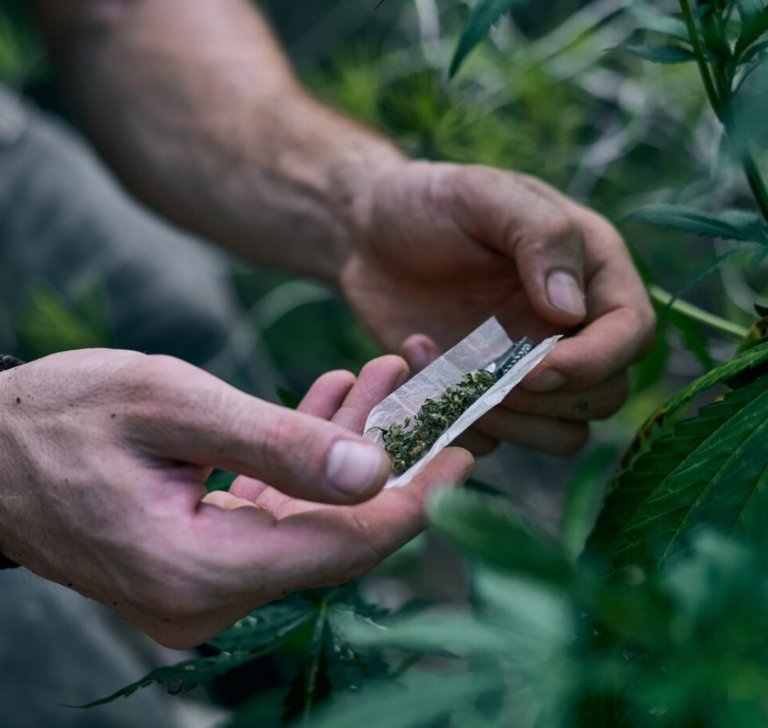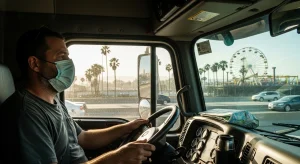It seeks to reclassify marijuana from Schedule I to Schedule III, how does this affect shippers?
The Biden Administration seeks to reclassify marijuana from Schedule I to Schedule III. According to reports, the Attorney General has presented this proposal to the White House Office of Management and Budget, backed by the opinion of the Department of Health and Human Services. This decision reflects Biden’s stance on decriminalizing the use and possession of marijuana and pardoning related federal and state convictions.
This reclassification does not imply the legalization of marijuana, but rather is a step in that possible direction. Former DEA administrator Asa Hutchinson commented to Fox News that this decision is not surprising but rather reflects the reality of cannabis consumption in the current U.S. landscape. The OMB will release the cannabis rescheduling proposal for public comment, as well as regulations regarding road transport.

Recommendations for CDL drivers regarding reclassification
Drivers are encouraged to ask questions and provide feedback on the potential reclassification to avoid misunderstandings that have occurred in the past. The lack of clarity in protocols has often led CDL drivers to confuse products containing THC (the active and illegal ingredient in marijuana) with CBD (a legal and non-psychoactive supplement), resulting in the end of careers and unhappy endings.
At present, the issue remains under review, continuing to pose challenges for CDL drivers and their careers. Although this step represents a significant symbolic move, if marijuana is reclassified as Schedule III, the process to obtain a valid prescription will not be quick. Additionally, truckers may need more than a prescription to ensure that consumption will not affect their driving ability.
According to a report from Commercial Carrier Journal, a 2022 study suggests that once drivers become accustomed to marijuana use, it does not affect their driving ability. The research indicates that individuals under the influence of marijuana tend to compensate for any impairment by reducing speed and driving more cautiously. However, experienced consumers show little functional impairment when driving under the influence of THC alone.
In recent years, marijuana consumption has become more commonplace in the United States, and more people are adapting to the laws that permit it. Reclassification will not have legal consequences for consumers who are not CDL drivers, but it is still unclear how it will affect those who are, according to state or federal authorities. For now, drivers are advised to stay informed about upcoming changes and comply with the necessary requirements for marijuana consumption without risking their licenses or careers.

The Wildest Truck Modifications on the Road Today
Truck customization has become a serious industry, with some builds rivaling high-end RV conversions in complexity and cost. From redesigned sleepers to upgraded suspension systems, these modifications do more than change appearance — they alter weight, electrical load, and the technical profile of the truck.

The most dangerous states in the U.S. during winter weather
While winter conditions are hazardous across the country, some states experience significantly higher accident rates during this season. A study by Samsara, a safety and

Winter storm disruptions lead to FMCSA HOS relief in 40 states
Motor carriers and drivers providing direct assistance in relief efforts in the affected states are covered by a hours-of-service (HOS) exemption. Over the weekend, a

Air Quality Alert in California Impacts Transportation
An air quality alert has been issued as high levels of fine particle pollution (PM2.5) trigger health warnings across several parts of California. The situation is affecting visibility, driver health, and logistics operations, forcing transportation professionals to take extra precautions on highways and in urban corridors

Winter Storm Survival on the Road: What Truck Drivers and Fleet Operators Need to Know Now
Winter storm with snow, ice, and extreme cold are creating dangerous highway conditions across multiple states, forcing truckers to make critical safety decisions before turning the key.

Miles of love: stories of truckers and their four-legged co-pilots
The love between truckers and their pets is a strong bond, and these stories will surely warm your soul. Love manifests itself in many ways,
